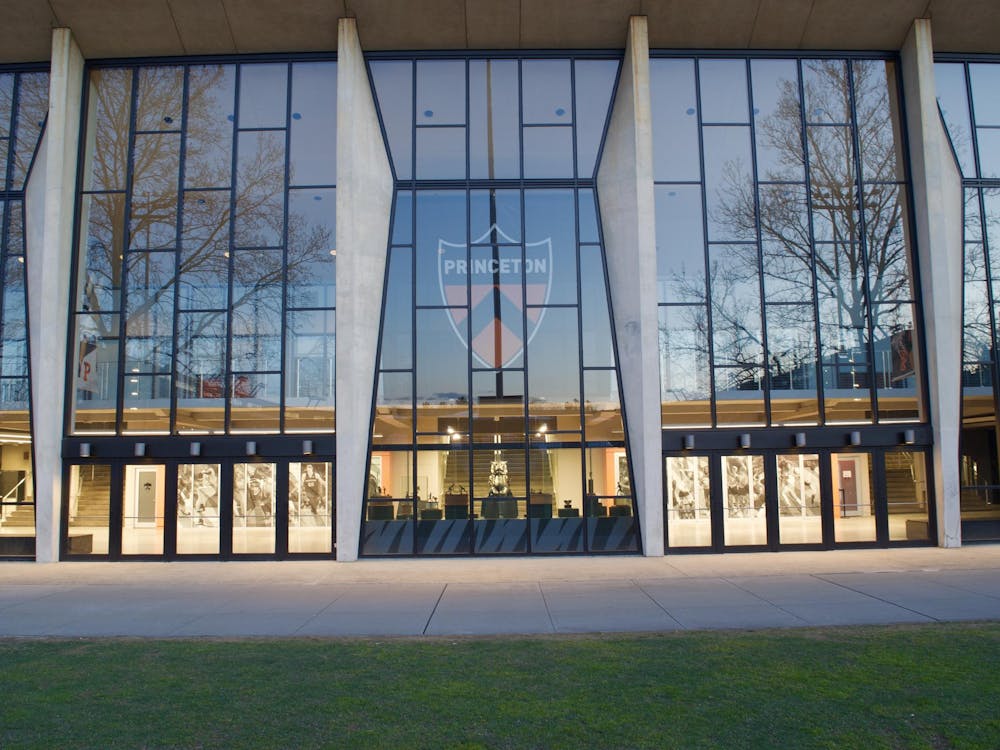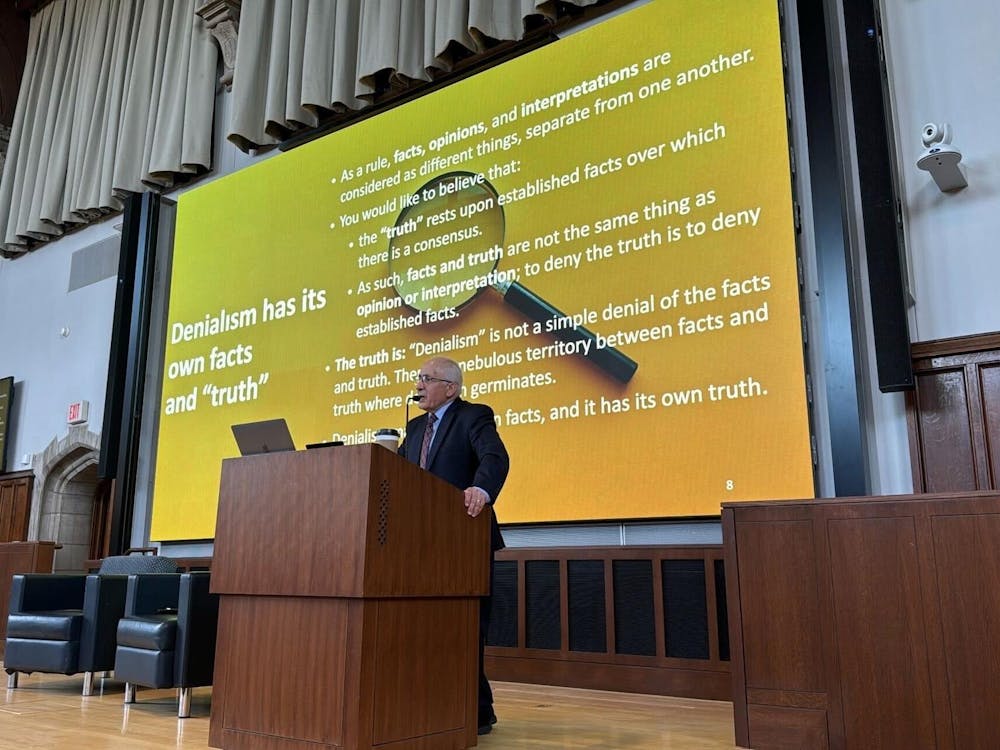My MacBook and I have a very exclusive relationship and see a lot of each other. As a 21-year-old college student at an Ivy League university, I am hardly ever without my laptop. When not writing notes by hand in class, reading a physical book, out with friends, eating, or sleeping, my MacBook is within arm’s reach, usually open. My life revolves around a glowing metal box. But my metal box looks unique. I like to dress it up and show it off.
Seventeen different stickers, ranging from political to purely decorative, make my laptop look like it belongs in a documentary film about punk skateboard culture. I added the first few stickers the summer before freshman year, then gradually filled up the empty space with more. Now, people see a collage of stickers instead of just seeing my laptop.
“When I ordered my stickers off the internet, I was thinking about how they would look to the rest of the world,” Megan Tung ’17 said. Megan specifically bought a sticker from the HBO show “Westworld” to attract attention from other fans. She also said that her stickers help her personality come through to other people, because she sometimes has trouble expressing herself verbally.
Putting stickers on our laptops shows how we perform a balancing act between embracing our personal identities and embracing the impersonal world that exists behind our screens, on the internet.
Megan likes laptop stickers so much that she created her own sticker start-up, designing original Princeton-themed stickers and releasing them in batches on campus. Students could pre-order stickers and pick them up the following week at designated stations in the campus center.
Besides designing their own stickers, students are also expert sticker-placers. Princetonians have been known to incorporate Da Vinci’s golden ratio of spacing and alignment into their laptop sticker arrangements, according to Christian Bischoff ’19.
Students who have bare laptops reported they don’t like the permanence of stickers. These students must be afraid of committing.
Meanwhile, Christian’s laptop is a product of his tender loving care. Black and green stickers from a Korean barbecue restaurant, a butcher shop, and a hot wings eatery create an edgy meat-lover’s aesthetic. Christian said he felt his stickers must be spaced evenly, and their colors had to complement one another.
Anna Zabel ’19 has a laptop covered in pro-choice political messages and characters from Studio Ghibli films. She also said her sticker arrangement is highly curated.
When she had to get a new laptop this spring, Anna bought the same stickers that had been on her old laptop, because she liked them so much.
Stickers are colorful, cool, and for the most part, serve a purely aesthetic purpose. But the machines we place them on are far more complex. The increasingly powerful function of our laptops and the amount of time we spend on them daily mean that we devote more effort to the marriage than they do. We pour out our lives into them, often sacrificing parts of ourselves in the process.
“I think with the computer, there is a feeling of losing your identity,” University visual arts professor Eve Ascheim said. “There is a feeling of just being another number, another click, another like, another this, or another that.”

The rise of the internet has caused us to experience less of the physical world around us and have fewer face-to-face interactions. While staying with a friend in Washington, D.C., last winter, she and I realized that her black lab Archie thinks it’s time to go for a walk when he hears the soft click of my friend’s MacBook closing. Princeton students I know use their laptops so much that the keys, screens, and mousepads become disgustingly covered in sweat, oils, and loose hairs. And we carry our laptop chargers with us always. Carrying the computer itself isn’t enough — we must be assured of its immortality throughout the day. We’re living through our technology when we worry over how to keep its battery alive.
But we’re totally in love with this way of life. Recently, I was walking down Nassau Street with another friend, who, looking down into her iPhone said, “I’m reloading my Starbucks card and paying for my Starbucks app with Apple Pay! I was born for the 21st century.”
University history professor D. Graham Burnett ’93 said he thinks these aspects of technology blur the line between different sectors of our daily lives.
“People think of themselves as freelancers, armed with their laptops,” Burnett said. “They have offices that consist of their laptop and wherever the hell they show up to,” he said. (The last class Burnett taught was a history course called “Things,” which had students “endeavor to heed Wordsworth's bold injunction — to ‘see into the life of things.’”)
Work and academic habits reflect our love for technology, but our passion solicits skepticism from experts in many different fields.
In a March 2018 interview with Vox magazine, MIT sociologist and clinical psychologist Sherry Turkle said, “These new technologies can be empowering and they can help us connect with other people, but they can also divide us and make us more lonely and isolated.”
It’s true, we sometimes give our machines more attention than our fellow humans. “Hanging out” can consist of friends being on their laptops together, not talking. People instinctively pull out their laptops when they sit down in a public place on campus, even when they don’t have an agenda. It’s a comfort mechanism. Walking through the dining hall, I’ll inevitably see students type and eat at the same time, while others watch Netflix with headphones during dinner.
For the most part, everything we see on our screens is only visible to us. Other people in the room don’t know which websites we’re surfing. Laptops are called “personal” computers because we have direct one-on-one relationships with them. Psychologists have said that one of the worst things about forms of communication like email and texting is the silence they create. Back when everyone had to talk on the phone, young children could hear and understand what their parents were talking about, even though they only heard one side of the conversation. Now, everyone’s conversations and messages are relegated to their personal screen and blocked off from the rest of society.
Yet, while we click on posts, apps, browsers, and files in private behind our screens, our stickers face outward, publicly and permanently. Anyone can see your stickers when they walk by your laptop, and you can see theirs.
Laptop stickers are an inversion of what we do on the other side of our screens. Because our stickers are outward facing, permanent, and exist in the physical realm, tatting up our laptops is the bravest form of “posting” we’ve done yet. We do business and correspond behind our screens in ways that will never make it out of the ether or see the light of day. But our stickers help bring our laptops into the world outside the internet.
Someone could see your laptop stickers, “like” them, and start a conversation with you about them face-to-face, in a quicker and more physical way than any online social media currently allows for.
Making these connections involves a targeted approach, according to University sociology professor Matthew Salganik.
“The thing is, often when we signal our identities, we signal them in ways that make sense to the people that we’re trying to signal them to,” Salganik said. “I wouldn’t expect that everyone tries to signal their identity to everyone, right? It’s like secret handshakes and inside jokes.”
Because our machines are such as big part of our lives, our efforts to communicate with them in the physical world says a lot about us.
“They are intimate machines that change our sense of self, our relationship with others,” Turkle said.
Placing stickers on our laptops means we’re embracing the power of our machines to make connections in the human world. Living life through a screen comes with certain negative effects, but at least we can take comfort in what’s on the opposite side of our LED displays. Computers are immensely powerful tools, yet stickers are old-school and simple, like pins and patches. Bringing the two together is our attempt to remedy the many imbalances in our relationship with technology. Our MacBooks are highly sophisticated and sexy, but they’re not human. We take pride and joy in putting stickers on our laptops because doing so helps our machines love us back.









